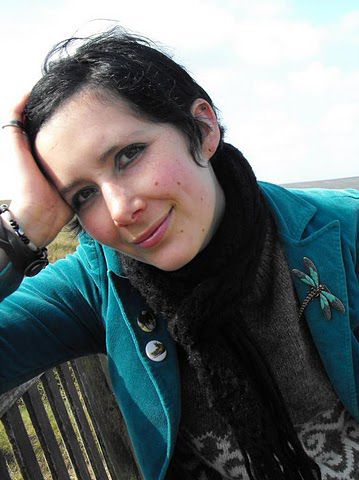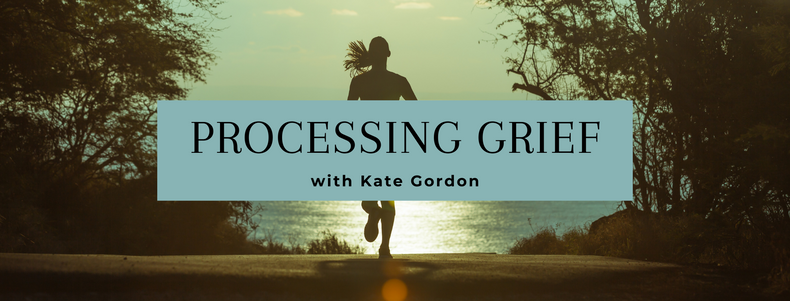Who is ‘Kate Gordon’?
I am a born-and-raised Tasmanian – born in Wynyard, currently living in the big smoke of Hobart. I’m passionate about my island home, and it permeates almost all of my writing. Come and visit us here (not just for Dark Mofo!) and see how amazing this place really is! I am obsessed with folk-alt-country singer, Josh Ritter. I once travelled to the UK to hear him play! I love crows, enamel pins, notebooks, artisan perfume oils, Harry Potter, Doctor Who and Game of Thrones. I generally read about two hundred books in a calendar year, not counting the literal thousands I read to my daughter. Speaking of which, I have the actual best daughter in the world. My favourite thing is talking books with her.
Can you tell us about ‘Girl Running, Boy Falling’ and how it came to be?
I have been working on various incarnations of ‘Girl Running, Boy Falling’, for many years. When I was nineteen, one of my friends killed himself. He was a hugely popular kid – funny, incredibly smart, handsome, popular, athletic, completely beloved. Everyone who knew him was in utter shock at his passing, and it rocked our close-knit world. Three years ago, another childhood friend took his own life. He, too, was so loved, and I was completely shaken to the core at his loss. I began ‘Girl Running, Boy Falling’, as a way of dealing with his passing, and of – finally – examining the impact that my other friend’s death had on me, at an early age. I wanted to look at the things we tell other people, and the things we hide; how we can never truly know people – even in this world of social media communication, where we feel like we know everything. I also wanted to look at the ways a community might deal with the death of one of its favourite sons; and how we “should” process grief. Word to the wise: there is no “right” way. ‘Girl Running, Boy Falling’ is a deeply personal book for me, but I am so hopeful that it might be able to help others, too, who are going through a similar tragedy.
Do Tiger and Wally relate to anyone in your life?
Wally is definitely my friend who died. My friend was the life of the party – a “jock” but also deeply sensitive and cerebral. He used to quote poetry to me, and it was a complete shock, coming out of the mouth of a sporty, popular boy! Tiger is, in part, me as a teenager – she has all the same insecurities; she tends to push people away when she’s hurting, and she doesn’t always deal well with anger – if at all. But she is also the “me” I wish I had been. She is stronger and more willing to take risks and be adventurous. Her friends are also my friends, in real life. When they read this book, they’ll know who they are!
What message is ‘Girl Running, Boy Falling’ trying to send?
JK Rowling said: “Depression is the most unpleasant thing I have ever experienced...It is that absence of being able to envisage that you will ever be cheerful again. The absence of hope. That very deadened feeling, which is so very different from feeling sad. Sad hurts but it's a healthy feeling. It is a necessary thing to feel. Depression is very different.”
— Rowling's 2000 interview with the Times (UK)
Suicide is the final stage in what is often a terminal illness. It is what happens when all hope is gone. Wally, in this book, has lost all hope, and all belief that there is a next stage to his life; a future; a way forward. He has love and support and friends, and success, academically and on the sports field. We are taught that, if we are loved and successful, we have no reason to feel depressed. But depression is not the same as sadness, and it doesn’t care about external factors. Family support, hobbies, meditation, a strong social life – all of these can help – but depression can only be treated in the same way any disease is treated: through medical intervention. In the book, Wally never gets the chance to get better; to feel better. But I wanted to show that there is hope. When we talk, when we reach out, when we seek help, it can and does get better. I really wanted this to be a hopeful story and show that you can and will be happy again. You will live, again, and it will be a beautiful thing.
Music plays a huge role in how each of the characters relate. Is music important to you?
Music is deeply, deeply important to me – and not just Josh Ritter. It has always been my escape and my comfort. Whenever I feel down, it’s always music that I turn to – a happy song, if I need a release; or a sad song, if I need to just wallow in misery; if I need to just “feel”. Music was so crucial, in my upbringing. My dad is a huge music fan, and he passed that on to me. I remember, vividly, dancing around the house with him, trying to cheer up, after a heartbreak. I remember just as clearly sitting on my bedroom floor, eating chips and listening to “Romeo and Juliet”, by Dire Straits, or “Fall at Your Feet”, by Crowded House, on repeat, and thinking I’d never feel happy again! Most of my childhood memories involve music, and it’s the same for Resey. I honestly think that books and music have the ability to change our emotions, in a way that people search for with drugs and alcohol. I can go from devastated to giddy with happiness in moments, if you play me the right song (usually Josh Ritter).
How do you feel about the ‘taboo’ often put on conversations about teen suicide?
According to 2017 data, suicide is the leading underlying cause of deaths among persons aged 25–44 (20% of deaths) and persons aged 15–24 (31% of deaths). That’s a national tragedy, and a national crisis. Why aren’t we talking about it more? I think the answer is that people are afraid. The concept of “suicide contagion” leads to fear of further deaths – fear that young people will glamorise the idea of suicide and carry out “copycat” acts. And so, we sweep the issue under the carpet, believing this will help to prevent more deaths. If they can’t see it, they can’t copy it. Clearly, that approach is not working. Mental health disorders should be treated with the same approach we use for all illnesses. Why are we so squeamish about discussing these diseases, just because they affect the brain, and not the stomach, or the liver, or the breast? We discuss the prostate – a gland that surrounds the urethra, in men, and whose health is tested by rectal examination – with less prudishness than we do depression or anxiety. And so, because we are afraid, or queasy, or embarrassed … people die. In this book, I made a deliberate decision to have the characters talk about what happens to Wally. Because I believe that it needs to be talked about. It’s only through talking – and awareness campaigns – that we can begin to resolve this national tragedy.
Girl Running, Boy Falling is on the 2019 CBCA longlist for Older Readers.


